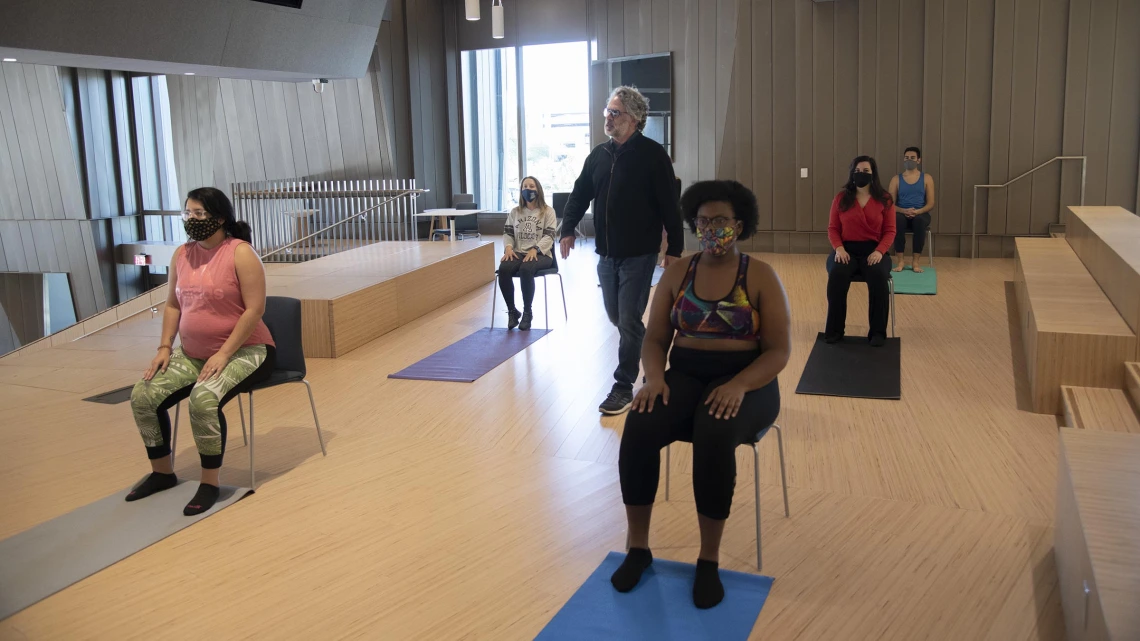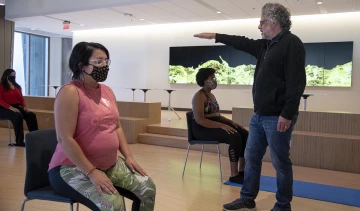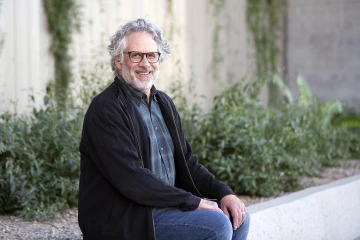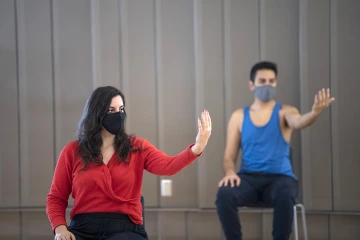Health and Humanities Launches with ‘Aging and the Arts’
Interactive program promotes healthy aging by improving physical and mental well-being.

UArizona staff and students learn about the Feldenkrais Method, which uses movement to increase self-awareness and improve function. The method will be taught during the “Aging and the Arts” series.
To launch its new Health and Humanities programming for the campus and community, the University of Arizona Health Sciences is offering a free education and exercise series to promote better health and wellness for an aging population.

Andrew Belser demonstrates movement techniques from the Feldenkrais Method to a group of students, faculty and staff in the Forum at the Health Sciences Innovation Building.
"Aging and the Arts" will demonstrate awareness through movement with mental and physical exercises from the Feldenkrais Method, led by Andrew Belser, certified Feldenkrais instructor and director of the School of Theatre, Film and Television at the College of Fine Arts.
Wellness through movement
The Feldenkrais Method uses small and methodical body movements to promote flexibility, coordination and overall wellness, Belser said. He will demonstrate all of the movements, which can easily be done at home.

Andrew Belser, certified Feldenkrais instructor and director of the School of Theatre, Film and Television at the University of Arizona College of Fine Arts.
“After looking for relief in many other practices and physical therapies, Feldenkrais was the only thing that alleviated my pain,” said Belser.
He’s since witnessed the many physical and mental benefits of paying closer attention to posture and movement, and the profound impact this self-awareness has had for clients and himself. “I sleep better, I think differently, I am sitting and typing this from a different position.”
Focus on aging
The “Aging and the Arts” series builds on Health Sciences’ commitment to humanities-focused programming to inspire the next-generation of health care leaders, practitioners and researchers to be holistic problem solvers who are able to form meaningful connections with patients. That commitment extends to health and humanities offerings for the community.

Jennie Greb and Alex Murillo practice a motion stretch, using their eyes to follow their hands. The exercise demonstrates how much further we move when we use all of our body.
In addition to promoting the new series on campus, White will tap into community partners to promote the new series, including the Tucson Center for Aging, the Pima County Health Department, the YMCA and the Tucson Museum of Art.
“With our virtual ‘Aging and the Arts’ series dedicated to improving your health and quality of life, we can continue practicing physical distancing while remaining connected as a community and improving our collective wellness,” said White.

